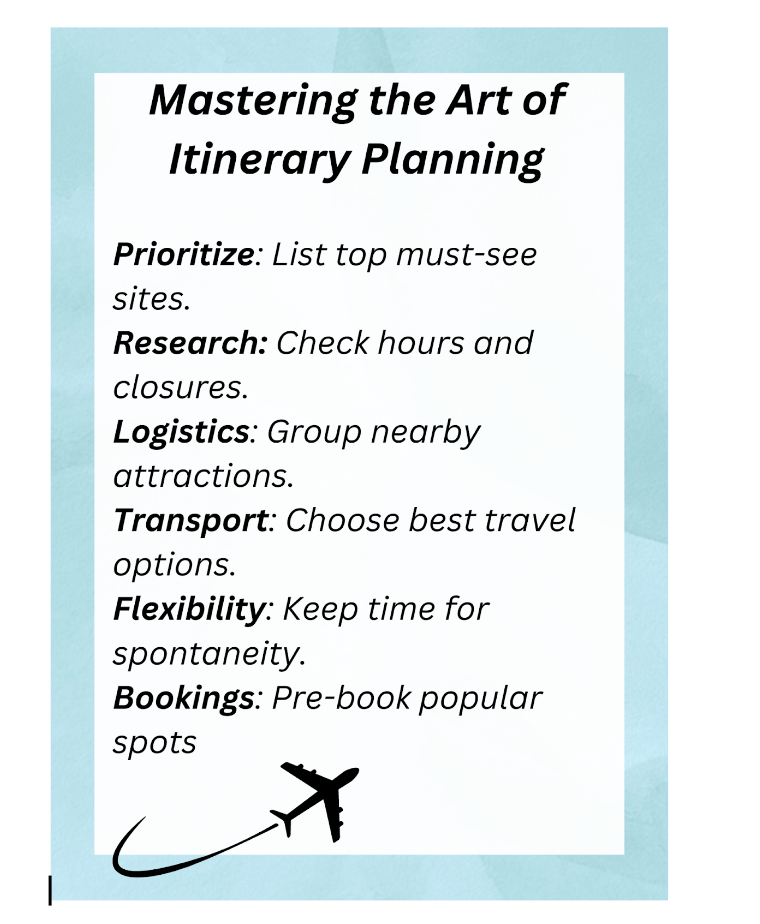10 Essential Tips for Your European Vacation Planning with Family

10 Essential Tips for Your European Vacation Planning with Family
Planning a European vacation can quickly become overwhelming, with endless options and complexities to navigate. You may find the challenges daunting - from securing affordable flights and accommodations to navigating local customs and staying connected.
In this article, we'll dive into 10 essential tips that will empower you to plan your dream European getaway with confidence and ease. Prepare to discover the secrets to an unforgettable European adventure.
Choosing the Right Time to Travel
The season you choose to visit Europe can significantly impact your overall experience. Traveling during the shoulder seasons, typically spring and fall, can provide several advantages. During these periods, you'll often encounter fewer crowds, enjoy milder weather, and potentially find more affordable European travel packages and flights due to decreased demand.
The summer months are undoubtedly popular for trips to Europe, but they also bring larger crowds, higher prices, and the risk of extreme heat in some regions. To mitigate these challenges, consider opting for European vacation packages. These packages often include curated experiences that can enhance your travel, making it easier to navigate peak tourist season with added comfort and unique inclusions.
Conversely, the winter season can offer a unique charm, with festive markets and snow-dusted landscapes, though some attractions may have reduced hours or be closed entirely. When selecting the best time for your European vacation, consider your travel priorities and preferences. Researching local festivals, events, and seasonal highlights can also help you plan your trip accordingly, ensuring a memorable experience.
Streamlining Travel Documents and Entry Requirements
Before embarking on your European family vacation, ensuring that your travel documents are in order is crucial. A valid passport is a non-negotiable requirement for entry into most European countries. Be sure to check the expiration date well in advance, as many destinations require at least six months of validity beyond your planned travel dates.
Depending on your nationality and the countries you plan to visit, you may also need to obtain a visa. Research the specific entry requirements for each destination on your itinerary and be mindful of any processing times or application deadlines.
Many European countries have also implemented the European Travel Information and Authorization System (ETIAS), which will require travelers to obtain an electronic travel authorization prior to their arrival. Stay informed about these evolving requirements to prevent unexpected delays or complications.
Strategic Flight and Accommodation Booking
Securing affordable flights and accommodations is a crucial aspect of planning for your European vacation. Start your search early and be flexible with your travel dates, as this can often result in significant savings.
Use reliable flight search engines like Skyscanner, Kayak, or Google Flights to compare prices across airlines and dates. Consider flying during the week or on less popular travel days, as these tend to be more budget-friendly.
Don't forget to take advantage of loyalty programs, credit card rewards, and discounts for early bookings or longer stays. With a strategic approach, you can maximize your savings and extend your travel budget further.

Mastering the Art of Itinerary Planning
Crafting a well-balanced itinerary is essential for making the most of your European vacation. Start by identifying your must-see destinations and prioritizing the attractions that align with your interests.
Use travel guides, tourism board websites, and online resources to discover hidden gems and lesser-known attractions that may not be on the typical tourist trail. When planning your itinerary, consider transportation logistics, anticipated travel times, and the optimal sequence of locations to minimize backtracking and maximize your time.
Incorporate flexibility to allow for spontaneous discoveries and unexpected diversions that may arise during your journey.
Managing Money Wisely Across Europe
Navigating the financial aspects of your European vacation can be daunting, but with the right strategies, you can manage your spending effectively.
First and foremost, research the local currencies and exchange rates for the countries you'll be visiting. Consider obtaining a travel-friendly credit card that offers favorable exchange rates and minimal foreign transaction fees. Alternatively, exchange a portion of your home currency before your departure to have some cash on hand for incidentals.
When it comes to making purchases, be mindful of the accepted payment methods in each destination. Many European countries have embraced the use of chip-and-pin credit and debit cards, so ensure your cards are equipped with this technology if you plan to use them.
Navigating Transportation within Europe
Europe offers a diverse array of transportation options, each with its advantages. Familiarize yourself with the local transportation networks to determine the most cost-effective and convenient method for your needs.
For long-distance travel, the extensive high-speed rail system, known as the Eurail or Interrail network, offers an efficient and comfortable option. These trains connect major cities and often provide scenic routes through the countryside.
For shorter trips or city exploration, consider using public transportation, such as buses, subways, and trams. Many cities offer convenient and affordable day passes or multi-trip cards, simplifying your commute.
Packing Essentials and Adaptation
Packing for a European vacation requires careful consideration and planning. Begin by creating a comprehensive list of must-have items, including versatile clothing, comfortable walking shoes, and essential electronics and chargers.
When it comes to clothing, prioritize layers, moisture-wicking fabrics, and items that can be mixed and matched easily. This will allow adaptation to changing weather conditions and minimize the need for excessive luggage.
Don't forget to pack a power adapter and voltage converter to ensure your electronic devices can be safely charged and used throughout your trip. Lastly, remember to pack necessary medications, toiletries, and a first-aid kit to ensure preparedness for any unexpected situations.
Ensuring Connectivity and Communication
Staying connected during your European vacation is crucial for navigation, accessing information, and staying in touch with loved ones back home.
Before departure, research mobile data options, such as international roaming plans or purchasing a local SIM card. This ensures reliable access to the internet and avoids costly roaming fees.
If you plan to make phone calls, consider using VoIP apps like WhatsApp, Skype, or FaceTime to utilize internet-based communication and keep your costs low.
Embracing Local Culture and Customs
One of the most rewarding aspects of a European vacation is immersing oneself in the rich cultural tapestry of the continent. Take the time to research and understand the local customs, etiquette, and social norms of the countries you'll be visiting.
Learn a few key phrases in the native language, such as "please," "thank you," and "hello," to show respect and appreciation for the local culture. This small gesture can go a long way in fostering positive interactions with the locals.
Be mindful of appropriate attire, especially when visiting religious or cultural sites, and familiarize yourself with any local dress codes or expectations. Embracing the local cuisine is also a fantastic way to enhance your cultural experience, so be adventurous and try new dishes.
Preparing for Health and Safety
Your well-being should be a priority during your European vacation. Before your departure, research the healthcare systems and emergency services in the countries you'll be visiting, and ensure you have adequate travel insurance coverage.
Many European countries provide universal healthcare, though the specifics can vary. Familiarize yourself with the process for seeking medical attention and consider purchasing comprehensive travel insurance, covering medical, trip cancellation, and emergency assistance.
Additionally, pack necessary medications, stay up-to-date on vaccinations, and research any health advisories. Exercise common sense, be aware of your surroundings, and know emergency contacts. With preparation, you can enjoy your European adventure with peace of mind.
Wrapping Up
Planning a European vacation can be daunting, but these 10 tips will help create an unforgettable adventure. From choosing the right dates to navigating customs and safety, this guide provides you with the tools to make the most of your getaway.
The key is flexibility, adaptability, and embracing the unexpected. With careful planning and excitement, you'll make lasting memories and deepen your appreciation for Europe.
FAQs
- What is the best time to visit Europe to avoid crowds?
The best time to visit Europe to avoid crowds is during the shoulder seasons, typically from April to early June and from September to October when you can enjoy milder weather and fewer tourists.
- How far in advance should I book my European vacation?
For the best rates and availability, especially for popular destinations, it's advisable to book your European vacation at least six months in advance.
- Are there any essential travel apps that can help during my trip to Europe?
Yes, downloading apps such as Google Maps for navigation, XE Currency for currency conversion, and TripAdvisor for quick access to reviews of restaurants and attractions is highly recommended for a smoother travel experience.






